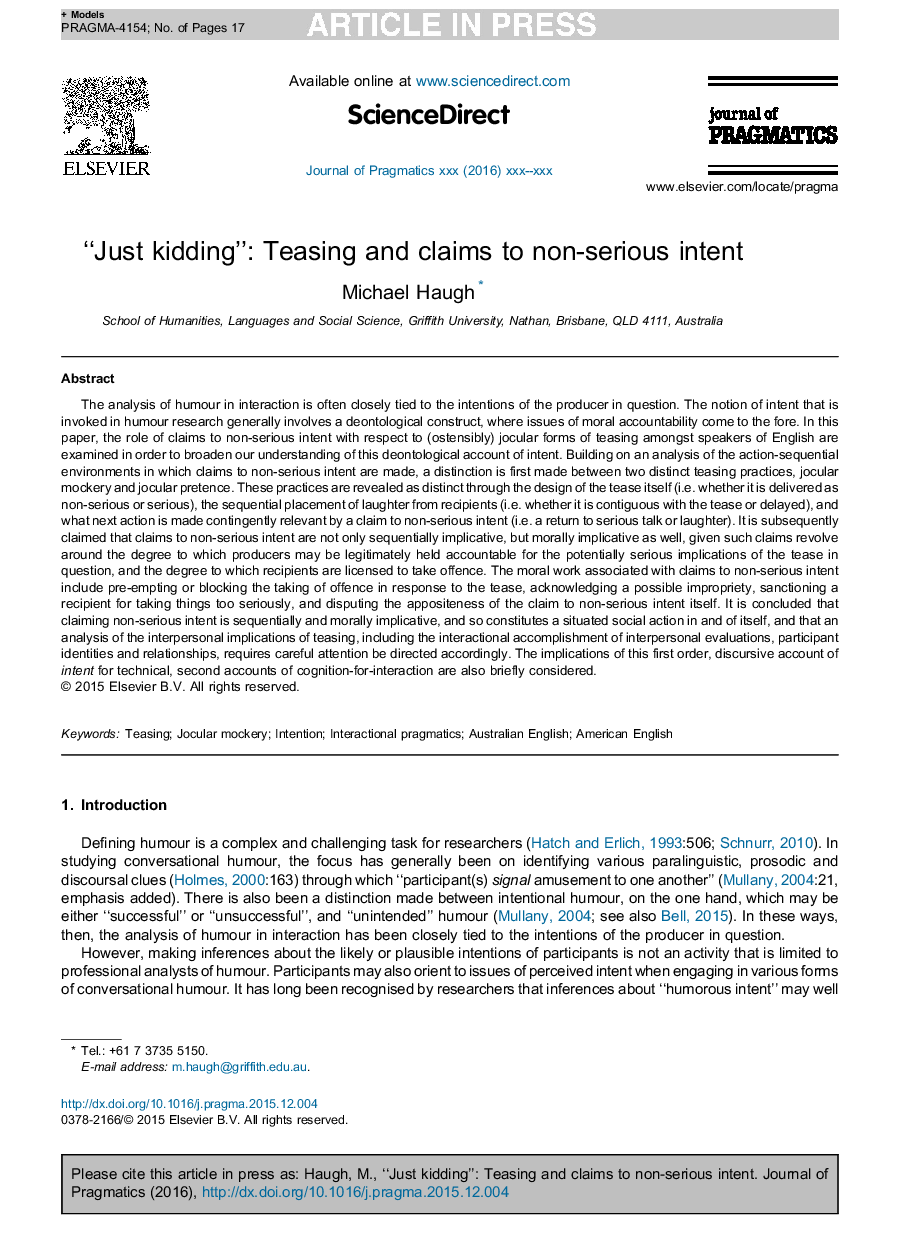| Article ID | Journal | Published Year | Pages | File Type |
|---|---|---|---|---|
| 7297939 | Journal of Pragmatics | 2016 | 17 Pages |
Abstract
The analysis of humour in interaction is often closely tied to the intentions of the producer in question. The notion of intent that is invoked in humour research generally involves a deontological construct, where issues of moral accountability come to the fore. In this paper, the role of claims to non-serious intent with respect to (ostensibly) jocular forms of teasing amongst speakers of English are examined in order to broaden our understanding of this deontological account of intent. Building on an analysis of the action-sequential environments in which claims to non-serious intent are made, a distinction is first made between two distinct teasing practices, jocular mockery and jocular pretence. These practices are revealed as distinct through the design of the tease itself (i.e. whether it is delivered as non-serious or serious), the sequential placement of laughter from recipients (i.e. whether it is contiguous with the tease or delayed), and what next action is made contingently relevant by a claim to non-serious intent (i.e. a return to serious talk or laughter). It is subsequently claimed that claims to non-serious intent are not only sequentially implicative, but morally implicative as well, given such claims revolve around the degree to which producers may be legitimately held accountable for the potentially serious implications of the tease in question, and the degree to which recipients are licensed to take offence. The moral work associated with claims to non-serious intent include pre-empting or blocking the taking of offence in response to the tease, acknowledging a possible impropriety, sanctioning a recipient for taking things too seriously, and disputing the appositeness of the claim to non-serious intent itself. It is concluded that claiming non-serious intent is sequentially and morally implicative, and so constitutes a situated social action in and of itself, and that an analysis of the interpersonal implications of teasing, including the interactional accomplishment of interpersonal evaluations, participant identities and relationships, requires careful attention be directed accordingly. The implications of this first order, discursive account of intent for technical, second accounts of cognition-for-interaction are also briefly considered.
Related Topics
Social Sciences and Humanities
Arts and Humanities
Language and Linguistics
Authors
Michael Haugh,
